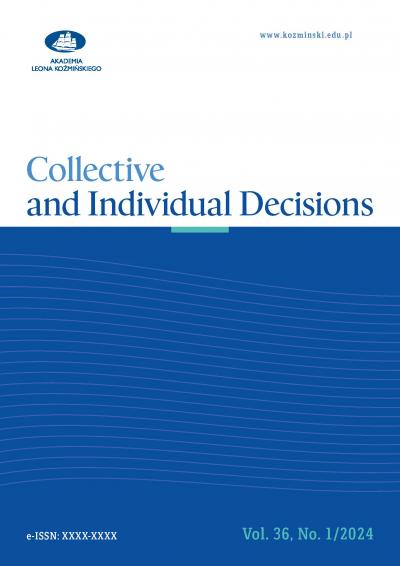Indeksy hybrydowe w grach oceanicznych, czyli racjonalny tłum w strukturze ideologicznej
Mikołaj Jasiński
Uniwersytet Warszawski
6/2015 (23) Decyzje
DOI 10.7206/DEC.1733-0092.47








